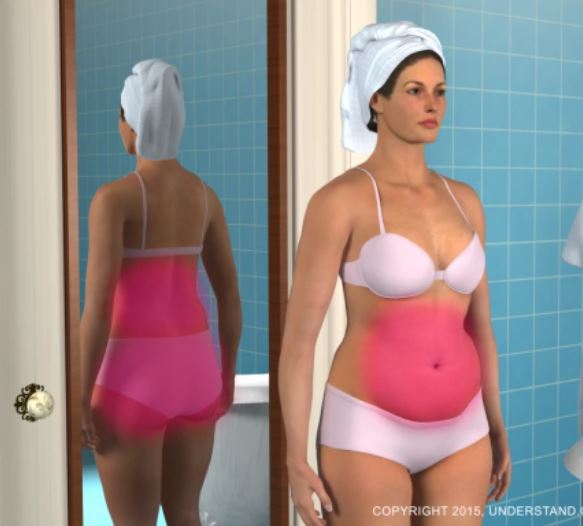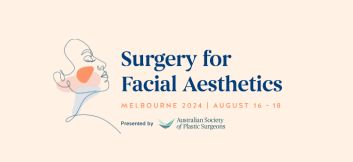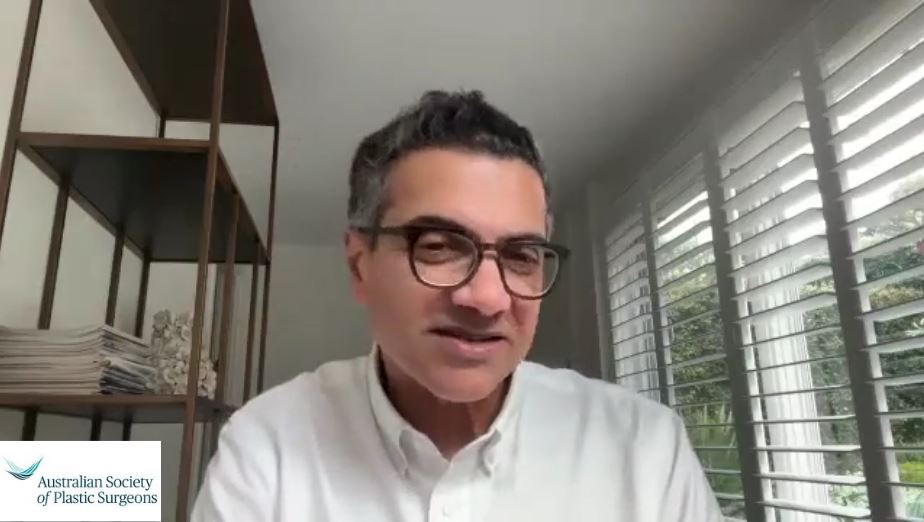Procedures
Fat injection
- About Your Specialist Plastic Surgeon
- Cosmetic
- Non-surgical Procedures
- Plastic Surgery Glossary
- Questions for Your Surgeon
- Reconstructive
- Surgical Procedures
- Abdominoplasty (Cosmetic)
- Abdominoplasty (muscle repair postpartum)
- Arm Lift
- Body Contouring
- Body Lift
- Breast Asymmetry Correction
- Breast Augmentation (Implants)
- Breast Implants with Lift
- Breast Lift
- Breast Reconstruction
- Breast Reduction
- Brow Lift
- Burns and Scarring
- Buttocks Lift
- Chin Surgery
- Cleft Lip & Palate
- Ear Surgery
- Eyelid Reduction Surgery
- Facelift Surgery
- Facial Implants
- Fat injection
- Gender Affirming Surgeries
- Gynaecomastia (Male Breast Reduction)
- Hair Replacement Surgery
- Hand Surgery
- Labiaplasty
- Liposuction
- Nipple Enhancement for Inverted Nipples
- Nose Surgery
- Scar Revision
- Skin Cancer
- Thigh Lift
- Tissue Expansion
Fat injection

Any surgical or invasive procedure carries risks. Before proceeding, you should seek a second opinion from an appropriately qualified health practitioner.
Fat injection, also known as fat transfer or fat grafting, is a procedure that improves the body’s contours and proportion by removing fat from one or more areas and injecting the fat into another area to add volume and reshape specific areas of the body. Common areas treated with fat injection are the face, buttocks, breasts and to reconstruct contour problems in any area of the body after weight loss, accidents or previous surgery.
Fat injection is invasive surgery that aims to improve the body’s contours by adding volume and reshaping specific areas of the body. Fat is removed by liposuction from one area of the body and injected into another area to add volume and reshape that area. Depending on the amount required and number of areas that require treatment, repeated treatments may be necessary.
Fat injection is an individualised procedure and may not be suitable for everyone. Always talk to your Specialist Plastic Surgeon before making a decision. Your Specialist Plastic Surgeon will assess your condition and general health, and plan the treatment that is best suited to you.
Fat injection may be suitable for you if:
- You are physically healthy and at a stable weight
- You have realistic expectations
- You are a non-smoker or have stopped smoking
- You have volume loss or contour depressions in specific areas of the body such as cheeks, lips, buttocks, breasts, or other areas following weight loss, accidents or previous surgery.
Fat injection is most likely to be successful for healthy weight people with firm, elastic skin who have pockets of excess fat in certain areas and hollowing in other areas. Although age is not a significant concern, older people may have less skin elasticity and may not achieve the same results as a younger person with tighter skin.
Before opting for fat transfer, you must keep in mind that:
- Multiple treatments (sometimes 3-4) may be required to achieve your goals
- You may not be able to undergo the procedure if you are unable to have an anaesthetic, if you are prone to bleeding tendencies or have poor healing ability or are too high risk of having surgical complications.
Depending on the procedure and the amount of fat removed, fat injection can take place under either local or general anaesthesia. If only a small amount of fat and a limited number of body sites are involved, fat injection can be performed under local anaesthesia, which numbs only the affected areas. For large volumes of fat injected, general anaesthesia is commonly used.
Modern anaesthesia is safe and effective, but does have some risks. Ask your Specialist Plastic Surgeon and anaesthetist for more information. Your surgeon and/or anaesthetist will ask you about all the medications you are taking or have taken, and any allergies you may have. Make sure you have an up to date list before the surgery.
Modern surgery is generally safe but does have the potential for risks and complications to occur. The risks of fat injection increase if a large number of body areas are treated at the same time or if the areas operated on are large in size.
Some of the possible complications and risks associated with fat injection may include:
- Complications caused by the injection of anaesthetic fluid can include lignocaine toxicity (if the solution’s lignocaine content is too high) or collection of fluid in the lungs (if too much fluid is given). This can occur with large volumes of fat injection.
- Excessive fluid loss, which can lead to shock (with large volumes of fat injection)
- Fluid accumulation
- Infection that develop in fatty tissues. This can be a serious complication and can be difficult to treat
- Delayed healing
- Friction burns or other damage to the skin or nerves
- Irregular skin surface, uneven contours or rippling
- Asymmetric or ‘baggy’ skin surface
- Change in skin sensation or numbness
- Skin pigmentation changes, skin discolouration or swelling
- Unacceptable scarring
- Damage to deeper structures such as nerves, blood vessels, muscles, lungs and abdominal organs
- Pain, which may be ongoing
- Allergic drug reactions
- Formation of blood clots or fat clots, which may migrate to the lungs
- Persistent swelling in the legs
- Deep vein thrombosis, cardiac and pulmonary complications
- Further surgery may be necessary to address complications.
Small amounts of fat injection can be performed under local anaesthetic in your Specialist Plastic Surgeon’s rooms. Larger amounts of fat injection can be performed in either an accredited day surgery or a hospital, depending on your general health and the extent of the procedure. A short hospital stay may be required in some instances. Your Specialist Plastic Surgeon will advise on the best option for you.
Before undergoing surgery, it is important that you:
- Be as fit as possible to help the recovery process
- Reach your optimal weight
- Check with your surgeon about your medications as some may need to be stopped
- Stop smoking
You will also be asked to provide a complete medical history for your Specialist Plastic Surgeon including any health problems you have had, any medication you are taking or have taken, and any allergies you may have.
You may be advised to stop taking certain medicines such as non-steroidal anti-inflammatory drugs (NSAIDs), aspirin, and medicines that contain aspirin. You may also be asked to stop taking naturopathic substances such as garlic, ginkgo, ginseng and St John’s Wort as they may affect clotting and anaesthesia. Always tell your surgeon EVERYTHING you are taking.
You may be given medicines to take before the surgery, such as antibiotics.
Your surgeon will also advise you if any other tests are required, such as blood tests, X-ray examinations or an Electrocardiograph (ECG) to assess your heart.
Prepare a “recovery area” in your home. This may include pillows, ice packs, a thermometer and a telephone within easy reach. Make sure you arrange for a relative or friend to drive you to and from the hospital or clinic. Someone should also stay with you for at least 24 hours after you return home.
Your surgeon should give detailed preoperative instructions. Follow them carefully.
Following your surgery, dressings or bandages may be applied to your incisions. You may be wrapped in an elastic bandage or a compression garment to minimize swelling and to support your operation site as it heals. A small, thin tube may also be temporarily placed under the skin to drain any excess blood or fluid that may collect.
Depending on the extent of your procedure, you may need to take a few days off work to rest. Avoid heavy lifting, strenuous exercise, swimming and strenuous sports until advised by your surgeon.
If you experience any of the following symptoms, notify your surgeon immediate:
- Temperature higher than 38°C or chills
- Heavy bleeding from the incisions
- Worsening redness around the incision sites
- Increasing pain or tenderness, or other problems that appear to be worsening
Your surgeon will give you specific instructions on post-operative care. These instructions may include:
- How to care for your surgical site(s) following surgery
- Medications to apply or take orally to aid healing and reduce the risk of infection
- Specific concerns to look for at the surgical site(s) or in your general health
- When to follow-up with your surgeon
Be sure to ask your surgeon specific questions about what you can expect during your individual recovery period, such as:
- Where will I be taken after my surgery is complete?
- What medication will I be given or prescribed after surgery?
- Will I have dressings/bandages after surgery? If so, when will they be removed?
- Are stitches removed? When will they be removed?
- When can I resume normal activity and exercise?
- When do I return for follow-up care?
Depending on the area fat injection may need to be repeated. However, as with all surgical procedures, revisional surgery may be necessary to correct minor irregularities.
Cost is always a consideration in elective surgery. Prices for a tummy tuck can vary widely between Specialist Plastic Surgeons. Some factors that may influence the cost include the surgeon’s experience, the type of procedure used and the geographic location of the office.
Costs associated with the procedure may include:
- Surgeon’s fee
- Hospital or surgical facility costs
- Anaesthesia fees
- Prescriptions for medication
- Post-surgery garments
- Medical tests
Your surgeon should welcome any questions you may have regarding fees.
General anaesthesia: Drugs and/or gases used during an operation to relieve pain and alter consciousness
Intravenous sedation: Sedatives administered by injection into a vein to achieve relaxation
Local anaesthesia: A drug injected directly to the site of an incision during an operation to relieve pain
Hematoma: Blood pooling beneath the skin
Sutures: Stitches used by surgeons to hold skin and tissue together
Visit the Plastic Surgery Glossary for more medical terms.
This website is intended to provide you with general information only. This information is not a substitute for advice from your Specialist Plastic Surgeon and does not contain all the known facts about this procedure or every possible side effect of surgery. It is important that you speak to your surgeon before deciding to undergo surgery. If you are not sure about the benefits, risks and limitations of treatment, or anything else relating to your procedure, ask your surgeon to explain. Patient information provided as part of this website is evidence-based, and sourced from a range of reputable information providers including the American Society of Plastic Surgeons, Better Health Channel and Mi-tec medical publishing.
Featured Stories

Member Blog with Dr Ellis Choy: What is a Deep Plane Facelift?
Who is the ideal candidate for a deep plane facelift?…
Continue reading
